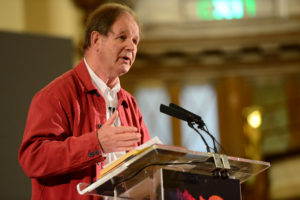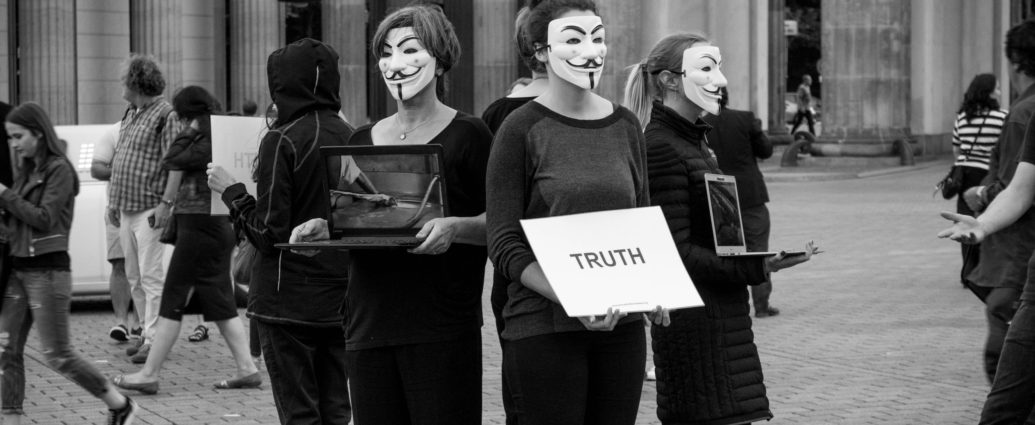Unless you’re a serious self-proclaimed bibliophile, you might have missed the fact that debates surrounding the ‘censorship’ of books have been popping up a lot (alright, twice) this month. First, the Times accused British author Michael Morpurgo of it. Allegedly, the children’s author was displaying his “21st century sensibilities” by “refusing”, due to its anti-semitic content, to include The Merchant of Venice in an upcoming book of child-friendly retellings of ten Shakespeare plays.
“Hawley was clearly upset, taking to Twitter to brand his former publisher a ‘woke mob'”
More recently – and attracting far more headlines – was the news that publishing firm Simon & Schuster had cancelled a book deal with U.S. Senator Josh Hawley. Hawley, one of several Republicans who loudly objected to the certification of Joe Biden’s Electoral College win, was photographed raising his fist in solidarity with pro-Trump demonstrators outside the Capitol building that same day. Then the ‘demonstration’ became a violent attempted coup, with rioters storming the Capitol building and partaking in looting, vandalism and the beating to death of a police officer. Hawley was clearly upset, taking to Twitter to brand his former publisher a ‘woke mob’ who had committed an ‘Orwellian’ attack on his First Amendment rights.
My statement on the woke mob at @simonschuster pic.twitter.com/pDxtZvz5J0
— Josh Hawley (@HawleyMO) January 7, 2021
The first question to be asked, then, is how do we define censorship? Well, to ‘censor’ something — very, very broadly speaking — means to suppress or prohibit parts or all of a book, film, artwork etc., regardless of your reasons for doing so. Explicit songs are ‘censored’ on the radio so kids don’t hear anything they shouldn’t, for instance. There are huge differences, however, between this and censorship as a tool of widespread political oppression. In other words, when a government censors or bans materials like books in order to clamp down on dissenting political and/or religious views. For a historical example, look no further than the original Nazis, whose government-endorsed public book burnings are still an infamous symbol of fascist regimes. I’m reminded, too, of books like Saudi author Rajaa Alsanea’s novel Girls of Riyadh, which upon publication in 2005 was promptly banned by the Saudi Arabian government.
This clearly isn’t at play where Morpurgo is concerned; he simply decided that he didn’t want to write about The Merchant of Venice, so he didn’t. I might add that he made this decision on the really quite reasonable grounds that one, “A story that the Nazis used to portray Jewish people in a bad light” wasn’t really suitable for eight-year-olds and two, he’d never enjoyed it much anyway. Hawley is very clearly not being oppressed, either. Certainly no-one is attacking his First Amendment rights, because the First Amendment is meant to restrict — guess who — the government from infringing on free speech. Private companies like Simon & Schuster aren’t affected by it at all. It’s also worth mentioning that when you hear about books being censored in the U.S.A., it’s usually ‘inappropriate’ books being banned in schools. And often, those books are objected to because they depict LGBTQ+ characters or issues. The difference being that no-one chooses to be LGBTQ+, while Hawley was acting completely of his own free will when he publicly endorsed rioters trying to overthrow a democratic election.

No-one is being “Orwellian” here, either. Contrary to whatever Hawley believes, in its proper use the word “Orwellian” describes “a political system in which the government tries to control every part of people’s lives, similar to that described in [George Orwell’s] novel ‘Nineteen Eighty Four’”. That novel, for the record, is set in a dystopian society with an extremely oppressive government which crushes any dissent through torture and brainwashing. (It’s basically totalitarianism with character development.) Orwell himself was aware and deeply critical of the oppressive practises of both extreme left-wing and right-wing regimes. In one essay, he in fact pronounced himself “against totalitarianism and for democratic socialism” — which politically seems to align him more with The Squad than with any Republican, but I digress. At one point, he even joined a leftist militia fighting against a fascist uprising in the Spanish Civil War. In short, it’s unlikely that Orwell would take the side of the we-lost-this-democratic-election-therefore-it-was-rigged rioters, especially when their number included a man wearing a “Camp Auschwitz” hoodie.

But anyway, for Hawley to call his misfortunes “Orwellian” implies a level of government control over every aspect of his life, career and creative output which has absolutely nothing in common with his or Morpurgo’s cases. Morpurgo just looked at Shakespeare’s plays, and chose to write about the ones he personally thought would be the most fun and interesting for young children. As he noted, “children will come to this play later, when they’ll have some sense of what Jewish people have endured over centuries.” And when that happens, there will be plenty of easily accessible ways for them to read or watch The Merchant of Venice along with the entire rest of Shakespeare’s work. No Big Brother-esque figure is going to try and stop them.
Likewise, Hawley is free to publish his book through another company, or to self-publish, or to vent his beliefs through any medium he likes. Essentially he’s confusing “Orwellian” with ‘people don’t want to work with me because I supported criminals in an attempted coup’, and no-one is going to lock him up without a trial and subject him to physical and psychological tortures just for that. He hasn’t even lost his Senate seat, although some — including Alexandria Ocasio-Cortez — have called for his resignation or expulsion.
“if you think that either should be forced to publish things they don’t want to … well, maybe you’re the one who’s attacking that right.”
You fist-pumped insurrectionists and baselessly attacked our elections. Your actions fueled a riot and you fundraised in the chaos. Five people are dead.
Even your GOP colleagues have distanced from your acts.
Yet here you are crying over a book deal. You should be expelled. https://t.co/9Xn8T9vol4
— Alexandria Ocasio-Cortez (@AOC) January 8, 2021
In short, there is nothing Orwellian or even faintly totalitarian about these stories, and there’s certainly no human-rights-violating censorship going on. If anything, Morpurgo and Simon & Schuster are exercising their own rights to freedom of speech. And if you think that either should be forced to publish things they don’t want to … well, maybe you’re the one who’s attacking that right.
Just food for thought.
Emma Curzon
Featured image courtesy of Florian Glawogger on Unsplash. Image license found here. No changes were made to this image.

